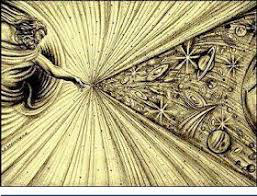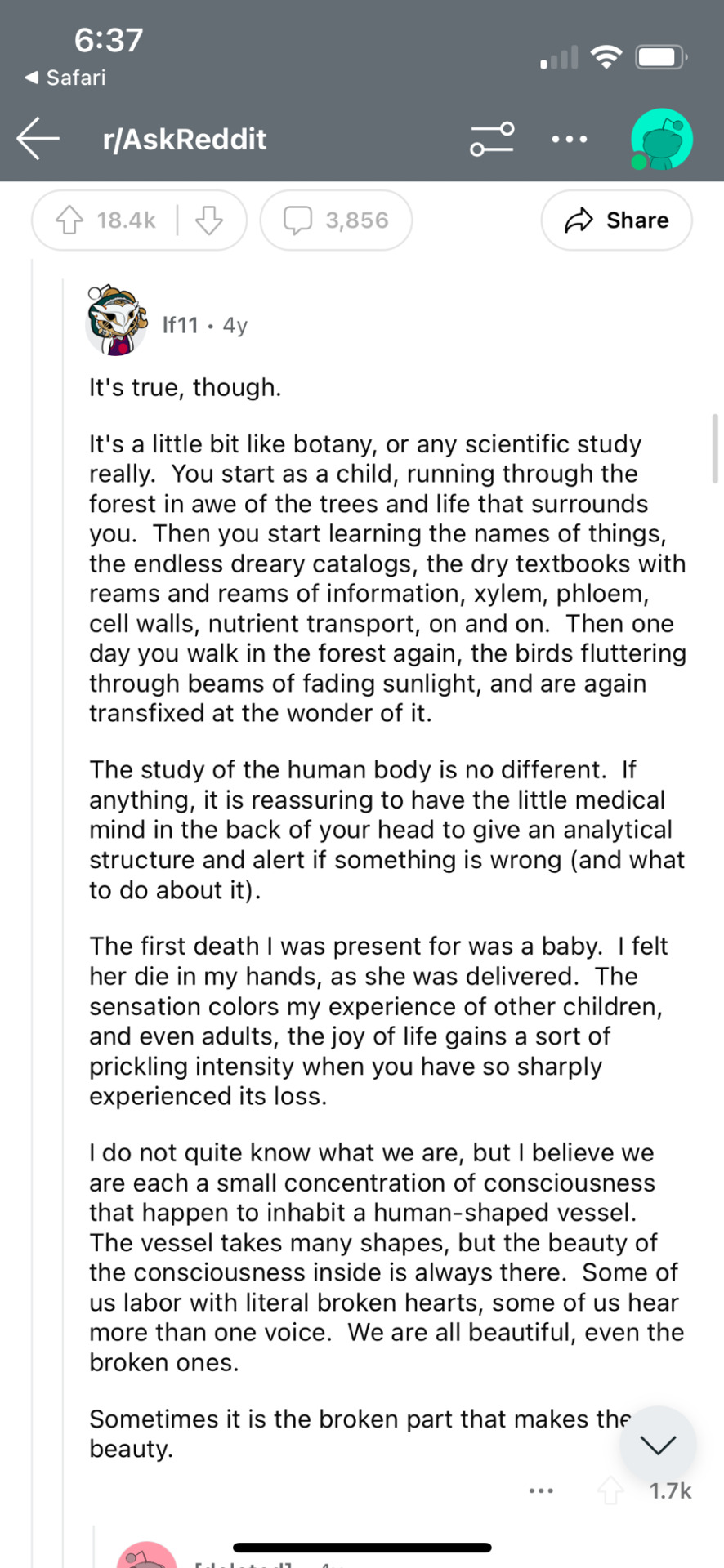#science and religion
Text
One thing I wish more people understood is that being religious and believing in science are not mutually exclusive. Throughout all of recorded human history, including over the course the last century all the way to today, some of the most important scientific advancements came from religious people and religiously funded institutions, mostly Jews and Muslims, but also Christians, that right, the Medieval church heavily funded scientific research because they were pretty much the only people who had that kind of money.
The idea they are two things that cannot coexist comes from the "enlightenment", and then later Victorian era, which sought to frame people in that past as inherently stupid and inferior, and then more recently the movement towards fundamentalist Christianity which is incredibly anti-science.
Atheism is not more compatible with science than theistic belief is.
#jumblr#jewish#judaism#islam#the history of science#science and religion#are not incompatible#antisemitism#islamophobia
272 notes
·
View notes
Text
I think I’m gonna learn about science as an almost devotional act to God. Knowing about the minutiae of creation will only bring me closer to God. Denying the wonder of the world would only alienate me.
#progressive christianity#christianity#science and spirituality#science and religion#science and faith
37 notes
·
View notes
Text
The Soul
Reuniting our Concept of Soul and Science
The problem with the soul, in modernity, lies in our misunderstanding of its old-school definition. This point is illustrated clearly in the mystical monotheist writings of Judaism. In the Zohar’s ‘The Gate of Reincarnation’ it is explained that there are five levels of the soul (based on the five Hebrew words for it). The first, Ruach, translating as ‘wind’ or ‘breath’ occurs when the air breathed in (specifically oxygen) mixes in the heart (via the lungs) allowing the pumping action of the heart and blood. This is quite literally a description of the conducting of the spirit of life, through the physical motor which ‘powers’, so to speak, the body. And conducting is indeed a much more accurate way to understand the concept of the soul than embodying. This mixing of the air, its use as a source of empowerment (vitality), to pump the blood via the heart, comprises the first level of the soul, the ruach. In such a way, the biological body is conductive of the soul. Once mixed with the blood it is sometimes called the “animal” soul. The final level of the soul is that in which the soul is in union with all of all, in the sense that it is G-d itself. (whereas G-d is the world, all of creation, and all of beyond). In such a belief G-d is in no way separate from nature (as science would seem to imply), but intimate and vital to it—in fact constructive of it. It is repeated again and again that G-d is not nature because G-d is not only nature. When we talk of this first level of the soul, we can think of the body as conductive of it, or passing through the body. One may say that clouds produce lightning, that lightning is not the same as clouds, and also that lightning can not occur without the static-electric action of clouds. Here the lightning is the soul, and the clouds the scientists ‘material’, or the monotheists ‘creation of G-d’. This is what is meant when the body is referred to as a ‘vessel’ or garment. These metaphors have been interpreted rather to mean that the biome is embodied by a materially existing, physical spirit of unknown quality, which carries with it not only power to live but also the personality of the individual and so on. Just as lightning is not a cloud, the experience of consciousness is not physical. For the body to produce rather than conduct the soul, the soul would cease to exist when the body does not exist. However we see that the world continues to exist with much ‘soul’ while our body does not. This is to say that the essence of consciousness, the essence of energy, the essence of being, is not created by material but co-existent with it. Whereas a Buddhist view sees material, neurons, sensation, and consciousness, (typically translated) to be ‘conditions’, conditions which, in interplay, cause the arising of the magical display of life. Such a view is not incompatible with material science, and is not incompatible with the ‘conditions’ as conductive of the soul. The soul passing through the body. Belief in G-d and the soul is, in a sense, a sanctifying and attribution of holiness to what we may otherwise fail to consecrate.
Trees use sunlight to knock apart carbon-dioxide, let out the oxygen, and place the carbon in a pile that will become their trunk. Fire (combustion), takes bonded carbon in the trunk of a tree, and using energy (sparks) re-combines oxygen with carbon, causing a chain reaction; flames. The human bodies use of oxygen, its breath, combined with fruit, allows it to conduct the beautiful world we exist in via our brain and consciousness, not only that, but all experiences and events of our life, and all history of humanity, the moving of stone, the building of cities, is allowed for by this pumping of the heart and fruit. We arrive again, when searching for its origin, at the mysterious (and holy) spirit, which we doubted an accurate view, as it were.
Where the scientist will disagree, is not in whether this power, this universal cause, this spirit of being, does exist—but in whether or not it is holy or banal. To claim it banal, just to start, is to desecrate the importance of one’s first love, one’s most exciting and beautiful life-events, not in memory, but in their actual happening (heaven forbid), as well as one’s wish to survive, one’s own innermost being, and so forth, onward into the ‘natural’ world, and throughout the Universe. Any human who denies to you the importance of falling in love is either not being honest with you or not being honest with themself. Pun intended. “Well…”, you may say, “In the sense that it coincides with neurons firing, electro-chemical signals, motion, and so on — all things which have no inherent importance, it is unimportant”. The importance of our experience, which co-exists with these conductors, is self-verifying and self-validating, as is G-d. In my understanding of the Prophets and Sages, of the monotheists truest explanation of G-d, one can not say such a thing does or does not exist. One may say the power of the sun exists, and another may argue “yes but the power of the sun is really only nuclear reactions, gravity smashing together atoms in its’ core — therefor the sun’s power doesn’t really exist, only nuclear reactions which don’t give off any important (holy) light”.
Excerpt from ‘Roadmap to Precious Stones’ by wisdom-and-such. More at AnInterestingBook.com
#mothers day#mom#god#science#theology#philosophy#meditation#writing#writers#art#mother#mysticism#mystic#athiesm#athiest#science and religion#scientific proof
9 notes
·
View notes
Note
Oh wow, a real physicist!! I’ve read a few of your posts on philosophy of science, and I think you’ve mentioned that you aren’t a religious person, but I’m curious if you have any thoughts on the compatibility of physics/science in general and religion?
Well, the tl;dr I guess is that it depends a lot on what specific religion you're talking about, and on how you approach religion.
"Religion" means a lot of different things to different people. I wouldn't say I'm not a religious person. I keep kosher; I keep the holidays; I try not to let my job spill over onto weekends (both for myself and for anyone I work with); I talk about religion a lot; I study every single day, and have done so my entire life--not always the Torah, although always something related to my understanding of religion (the universe and my place in it): science, social justice, but yes, also sometimes the Torah. To me, in the context of my religion, that is being religious. Certainly not extremely so, and I do have plenty of extended family who are much more religious to contrast myself with. Therefore whether I say I'm religious or not is usually contextual, based on what I'm comparing myself to.
Now, I want you to notice two things in my previous paragraph. The first is that I listed studying science as a religious practice for me. And I do consider it that. It's not the only reason I'm a scientist, but it's definitely related. Among Jews, this is a fairly common attitude--0.2% of the world's population are Jewish but ~25% of Nobel Laureates in the sciences are, and some of that is directly because there is a religious fervency among Jews when it comes to academic pursuit, including science.
But you can meet plenty of people from other religions who feel similarly, even if it's not the mainstream attitude in a lot of other religions like it is in Judaism. At my previous job, the other two PhD physicists were both Catholic, and both of them felt similarly, that being a scientist was a part of practicing their religion; the mainstream Catholic hegemony has actually encouraged this attitude on and off over the centuries (despite some very obvious historical cases where they were anti-science), and especially it was a pet issue of Pope John Paul II, who was the Pope for the whole childhood and early adulthood of my coworkers. There are certainly conservative Catholics, especially in the US, whose views are not in line with Papal pronouncements in this respect, but officially the Catholic church is pro-science (including pro-evolution), and is known for funding astronomy and medical sciences in particular. Meanwhile, in contrast, the engineer at my last job was baffled to hear all of this from the rest of us over lunch one day. He'd grown up Mainline Protestant (i.e. not Evangelical), which is not a hierarchical religion and so allows a lot of individual variation in opinion, but generally takes a neutral stance toward science. He felt as though science versus religion was a choice he'd made, and he'd chosen science and rejected religion. In contrast to his feelings on it, I've known other scientists from science-neutral religions who have not felt any need to make a choice, but rather that science and religion are simply unrelated and therefore cannot be in conflict; I've worked with Buddhists, Hindus, and yes Mainline Protestant Christians who all felt that way. And then there are yet other religions, Evangelical Protestant Christianity topping the list, where science and religion are in direct conflict and people from those religious backgrounds make an active choice of one or the other, or make an active choice to keep those parts of their life fully compartmentalized from each other.
The second thing I want you to notice is that so far I've said nothing about faith. I didn't even list it among my own religious practices--because it isn't there. I'm a Jew, it doesn't have to be. In fact, I'm a third-generation agnostic/atheist: not even any of my grandparents believed in G-d, although each lacked belief in a different way.
Taking a faith-based approach to the world does hinder scientific practice, in my opinion, and in the opinion of most of my scientist friends. A scientist needs to be willing to discard their most deeply held beliefs about how the world works when presented with evidence to the contrary.
For me, as a Jew, it's just a non-issue. My most deeply held religious beliefs are all about how to set up a moral and ethical framework, not about the way the world works; they're not based on faith in things that can be in conflict with evidence. (And since they're about the framework rather than the specifics, I have the flexibility to change my individual moral stance on an individual issue when I'm presented with evidence that a previous stance was based on ignorance.) So here, I'd agree with that subset of Mainline Protestants, as well as people from Eastern religions, who say there cannot be a conflict because my religious beliefs are simply unrelated to any of the questions science is trying to answer. (With the caveat that more knowledge helps put beliefs into more effective practice, and therefore science can help religion. Interestingly, while I as a Jew mean this with respect to beliefs about how to practice ethics, Catholicism takes this a step further to beliefs about religious cosmology, saying that things like the Big Bang Theory and evolution elucidate how God performed the acts of creation. The majority of Jews don't take religious cosmology literally enough for this to even come up as a question; among those who do, most parallel the Catholic approach of agreement and elucidation, and relatively few parallel the Evangelical Christian approach of anti-science.)
There are other people, from strongly faith-based religions, whose personal philosophies are all about faith. These religions are the ones where I think there's a major incompatibility between science and religion--when the incompatibility is in an approach to understanding the world rather than about the specific stories. People from these religions tend to have two options. They can either compartmentalize so strongly that they practice an entirely different way of understanding the world when doing science than in the rest of their life, which is cognitively pretty difficult. Or, they can choose between science and religion, rejecting one in favor of the other.
All of that said, there’s yet a third issue which is a bit of a pet peeve of mine when it comes to philosophy of science. And that’s when people who claim to be taking a scientific approach are actually taking a faith-based approach to science concepts. You see that when people talking about “believing in” evolution--sometimes they’re using that phrasing as short-hand, but sometimes they really mean it in a religious way. But you also see it a lot with people who confuse meta-science for science, or who confuse analogy for fact. That’s muddying the waters in a way that I find intellectually dangerous. It leads to misunderstanding the nature of science, and occasionally can even lead to cult-like thinking (Less Wrong springs to mind as the paradigmatic example, but I’ve also got a friend who is in a new-age-y “science”-based cult).
#science and religion#I'm showing my age a bit here but to my last two points there was an episode of Friends where Ross and Phoebe were arguing#about evolution back and forth for the whole episode#and the big gotcha at the end of the episode was that when Phoebe asked Ross (a paleontologist) if he'd stop believing in evolution#if presented with sufficient evidence#he said yes#and she took that to mean (and the writers seemed to think) that she was the intellectually stronger of the two#rather than that Ross was being a good scientist#anyway that really bugged me
30 notes
·
View notes
Video
youtube
The Promise & Peril of Technological Hope" - Ted Peters
In the Video Ted Peters addressed the theme of "Faith, Technology & the Future", with particular attention to topics at the intersection of technology, spirituality, religious transhumanism, science and religion. Members, friends and critics of the association have many views. This is one of them. It is not necessarily shared by others.
2 notes
·
View notes
Text

SCIENCE AND RELIGION
“Religion without science is lame. Science without religion is blind.”
-Albert Einstein
I know we like to look at these modes of thinking as two very different fields but that isn’t always the case. It’s n fact, I’d take it’s step further and say the two disciplines enhance each other.
13 notes
·
View notes
Quote
… the phenomena of the universe find realization through the one power animating and dominating all things, and all things are but manifestations of its energy and bounty. The virtue of being and existence is through no other agency.
All things are involved in all things. For every single phenomenon has enjoyed the postulates of God, and in every form of these infinite electrons it has had its characteristics of perfection.
Abdu’l-Baha qtd in https://bahaiteachings.org/does-nature-itself-have-a-spiritual-purpose/
5 notes
·
View notes
Text

#religion#dogma#atheist#science#bible nonsense#sun#universe#earth#ausgov#politas#auspol#tasgov#taspol#australia#fuck neoliberals#neoliberal capitalism#anthony albanese#albanese government#religion is a mental illness#religion is bullshit#religion is toxic#religion is a scam#religion is stupid#class war#bible scripture#bible quote#bible study#bible verse#bible#eat the rich
95K notes
·
View notes
Text
I just remembered the other week a number of freshman philosophy majors/minors were debating science and shit. And one of the things was aliens on other planets and stuff and Christianity based implications of the presence or lack of alien Jesus and I remember in that moment I was so bewildered. Because it’s like, are you talking life on other planets like reasonable beings with evolved societies and religion? Cause a fuck ton of people are just looking for simpler life. Like bacteria and shit. And also does your belief of God hinge on the fact that Jesus came and saved you and other life would ruin that? What exactly are you arguing there are too many moving parts and completely separate components to this..
#alien species#alien Jesus#science hyperfixations#alien life#sounds very similar to medieval Europeans and American tribes#science and religion
0 notes
Text

This comment on Reddit was on a sensitive woman’s health/gyn topic. But holy crap did I find this literary fiction like writing. Just wow.
#fanfiction#creative writing#life and death#nature and the human body#human consciousness#existentialism#spirituality#science and religion#poetic
0 notes
Text
Are We All Just Bundles of Quantum Energy?
In a recent comment, a reader named Anton said:
Hi Lee,
I lately watched a documentary about quantum physics that just confused me so much, to the point where I began to think about the transition and distinction between the physical and spiritual worlds, and I couldn’t really make sense of it in my head. Or to say it better, I got the Swedenborgian message, but I got confused by the quantum…

View On WordPress
#distinct levels#gradual levels#material reality#new age#physical reality#physics#quantum physics#science#science and religion#second law of thermodynamics#spiritual reality
0 notes
Video
youtube
One Of The Deepest Conversations You Will Listen To About God | Dr. John...
0 notes
Text
"Liberty in Faith: Embracing Diversity and Unity in Modern Christian Libertarian Thought"
1. Foundations of Christian Libertarian Thought • This chapter introduces the core principles of Christian Libertarian philosophy, tracing its historical roots. It explores the synthesis of Christian ethics, particularly the teachings of Jesus, with libertarian ideals of individual liberty and limited government, emphasizing the theological basis for respecting free will and personal…
View On WordPress
#Christian#Christian Libertarian#Christianity#Cognitive Science#Faith#libertarian#Modern Listener#New Testament#Philosophy#Science and Religion
0 notes
Text

Science and Religion
For centuries, the relationship between science and religion has ranged from conflict and enmity to harmony and cooperation, while various thinkers have argued that the two concepts are inherently heterogeneous and completely different.
0 notes
Text
Datafication in Business - Pros and Cons
Hello everyone, I am finally at home. I hope your day was as Awesome as mine. We had showers of blessings from on high almost all day. I love the rain. In fact I love all the seasons. Because if we didn't need these seasons, we won't have them. Anyway, as I was driving home, one of the music tracks that came on was this music by Gwen Guthrie. For some reasons, I always thought Janet Jackson sang this song - "Ain't Nothin' Goin' On But The Rent, you got to have a Jay O'Bee if you want to be with me.." No it was Gwen Guthrie. She further sang "No romance without finance..."
As I sang along to the music, it suddenly dawned on me, and I questioned how did she know there ain't nothing going on but the rent and so forth. Hmmm... she must have gathered some type of data and analyzed it. Perhaps subjectively gathered data, rather than objective data. Qualitative rather than quantitative data.
Then, I thought about my article on datafication. Datafication, and big data appear to be hot topics these days because of all the fantastic attitudinal and behavioral predictions possible. Very interesting stuff. I have my very unique opinions about the scientific and business processes, and the intuitive/spiritual components to analyses.
One person who clearly expresses my thoughts is Toto Wolff with his Quote:
“You need the right balance between data and gut feeling…”
If you want to know more about my take, here is my blog page on Datafication in Business:
Enjoy the Read!
0 notes
